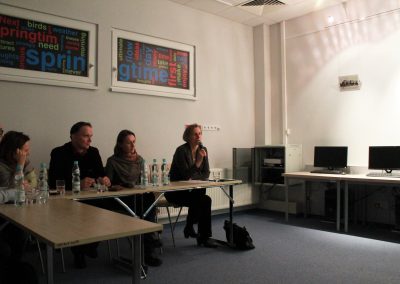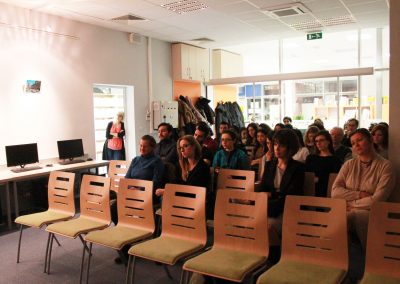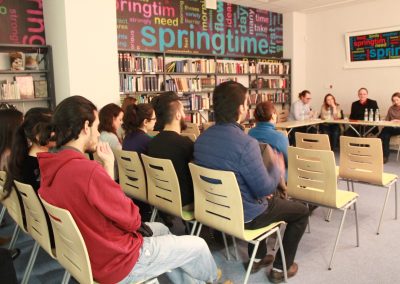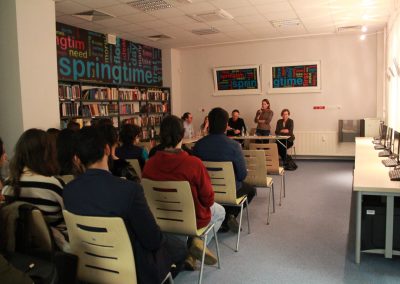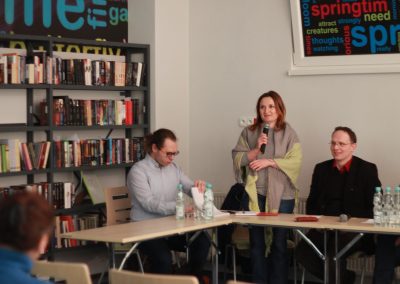On Wednesday we met in the Municipal Library Fil. 4 to participate in the debate entitled Gender ideology(ies): Man and woman – different by nature, inequal by society? We tried to find the answer to this question with our four guests: sociologists Borys Cymbrowski and Anna Czerner, philologist Katarzyna Molek-Kozakowska and biologist Elżbieta Pogoda.
We were aware that for most people the term gender is unfamiliar or even unfriendly, especially when someone is not a philologist or a social researcher, so we started with the basic questions: what gender is, how it exists in our respective fields of studies, and if there exists gender ideology. We can say that gender in general is about social consequences of being men, women or the others, because in the opinion of Elżbieta Pogoda even from a biological point of view there are more than only two sexes. And there is no evidence that one sex has an advantage over another.
In Polish media we encounter some false beliefs about the meaning of the word “gender”. But as Borys Cymbrowski mentioned it is a problem of confusion of nature with culture, because in the Polish language we have only one word (płeć) for gender and for sex. So some commentators confuse biological meaning with the cultural one. They accuse gender scholars of promoting a dangerous ideology which tries to convince people to choose their sex. As Anna Czerner said, the truth is that in the social sciences gender was a neutral category to analyse the relations between people in society, but unfortunately some institutions and politicians took one of the least popular topics in gender studies and used it as a basis to create and apply gender ideology as a political tool.
After that we focused mostly on language aspects within gender issues. Katarzyna Molek-Kozakowska indicated that for her it was easier to introduce herself in English than in Polish, because in Polish most names of academic professions have only a masculine gender, or even if it has a female gender, masculine forms sound more serious and more prestigious. But language is not a constant phenomenon – it is changing all the time. Twenty years ago we considered some female forms of words as strange, but today we take them for granted. We concluded that it is important to include more women-related forms to language, and it is one of the main catalysts of social changes in the public sphere.
We are really glad we could discuss it with you and with the citizens of Opole. We would like to thank you all for your presence and participation, and we hope to see you soon during another discussion. The aim of the whole debate was to clarify a little the problem of gender, but two hours is a short time when you are discussing such an important and complicated topic – so we treat this meeting only as a start. The debate is still open.
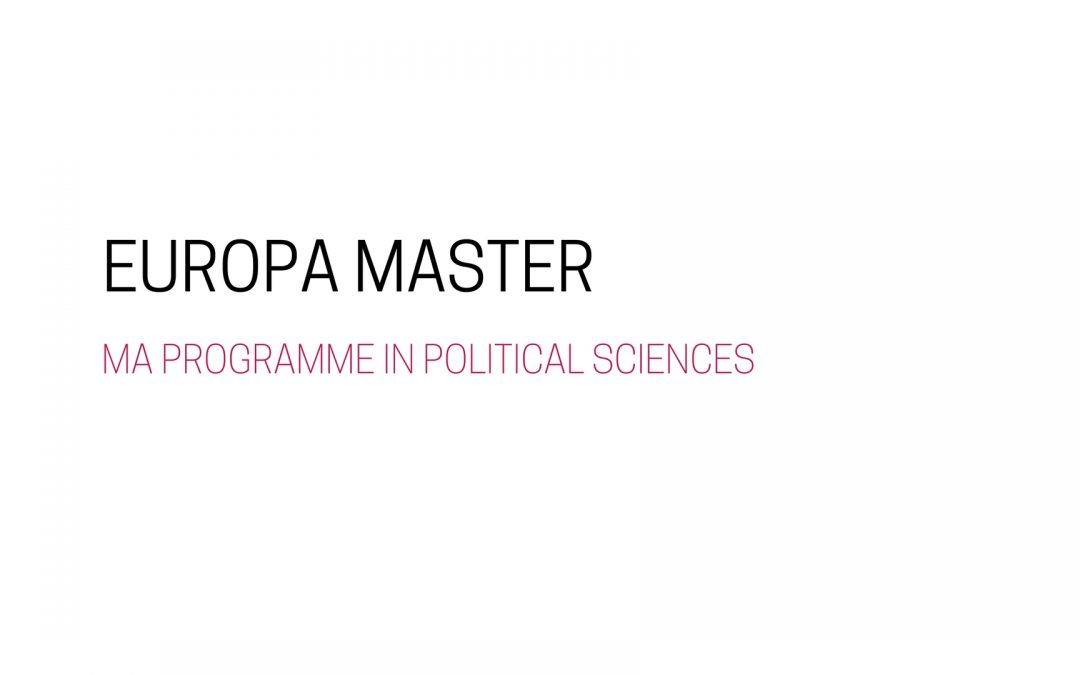
Europa Master – apply now
If you are interested in European politics, languages and culture, and you also want to study Europe in depth and like the idea of getting three national degrees, then the trinational M.A “European Studies” is just the thing for you! four semesters 120 ECTS credits...
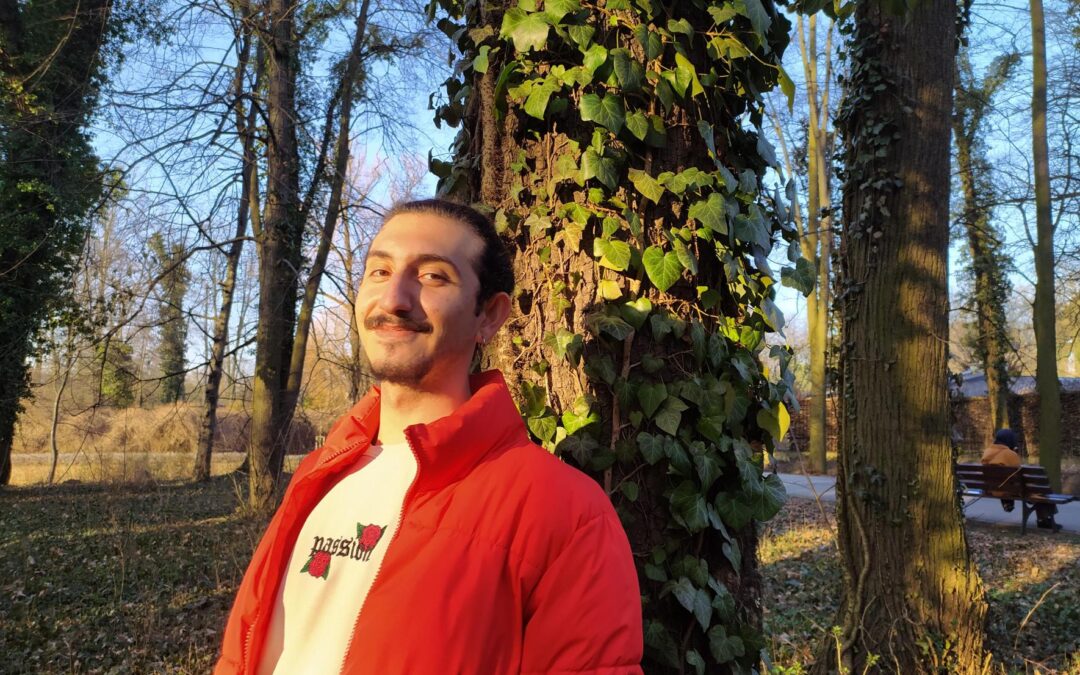
Canberk in Poland
Hello Everyone! It's time for a new story about an Erasmus experience! Merhaba Canberk! Please tell us something about yourself 🙂 Hi, I’m Canberk from Turkey. You already know me, because I’ve taken part in a few events organised by the Erasmus Office during the...
Information regarding refunds of tuition fees paid for 2021/2022 and 2022/2023 academic years
Dear Candidates! Due to the fact that admission for the 2022/2023 academic year started on 19.04.2022, as of 11.04.2022, refunds of tuition fees paid during the last recruitment process (in 2021) will be put on hold until the new recruitment ends. New applications...
Admission for 2022/2023 academic year
Admission for 2022/2023 academic yearDear Candidates! Please be informed that admission for the 2022/2023 academic year will start on 19.04.2022. The registration will be possible through the Online Recruitment System. Detailed information regarding our offer,...

Take part in Intensive Training for Economics Teachers!
Application procedure available here Application documents shall be submitted by candidates till 15th April 2022 to Mrs. Halina Palmer-Piestrak from Erasmus+ Office, KMICIC hall, 31 Grunwaldzka Street Więcej aktualności

Take part in Intensive Summer Programme for Economics Students!
Application procedure is available here Application documents shall be submitted by candidates till 15th April 2022 to Mrs Halina Palmer-Piestrak from Erasmus+ Office, KMICIC hall, 31 Grunwaldzka Street More News
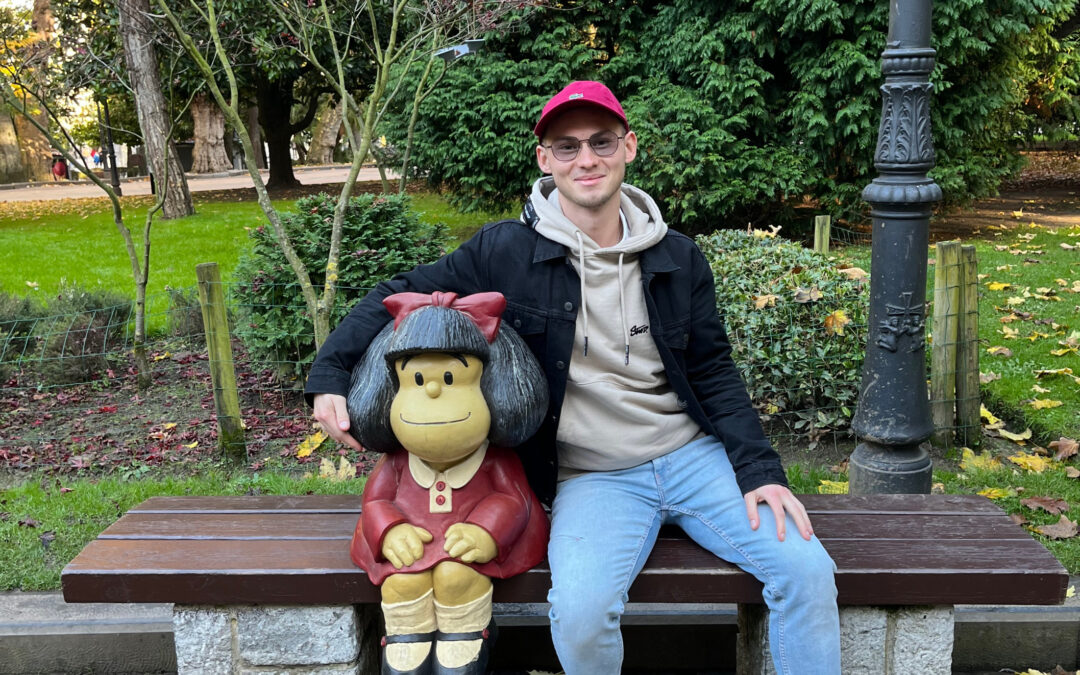
Dominik in Santander
Our today's guest is Dominik who went on Erasmus to Santander in Spain! Let's listen to his stories 🙂 Hey! Please introduce yourself and tell us about your hobbies! 🙂 Hello everyone! I’m Dominik and I study Finance and Accounting at the University of Opole. My...
2022/2023 recruitment results
Dear Students We would like to inform that the recruitment results for the students' mobilities during the 2022/2023 academic year will be sent to all the applicants via email on Monday (28 March 2022).
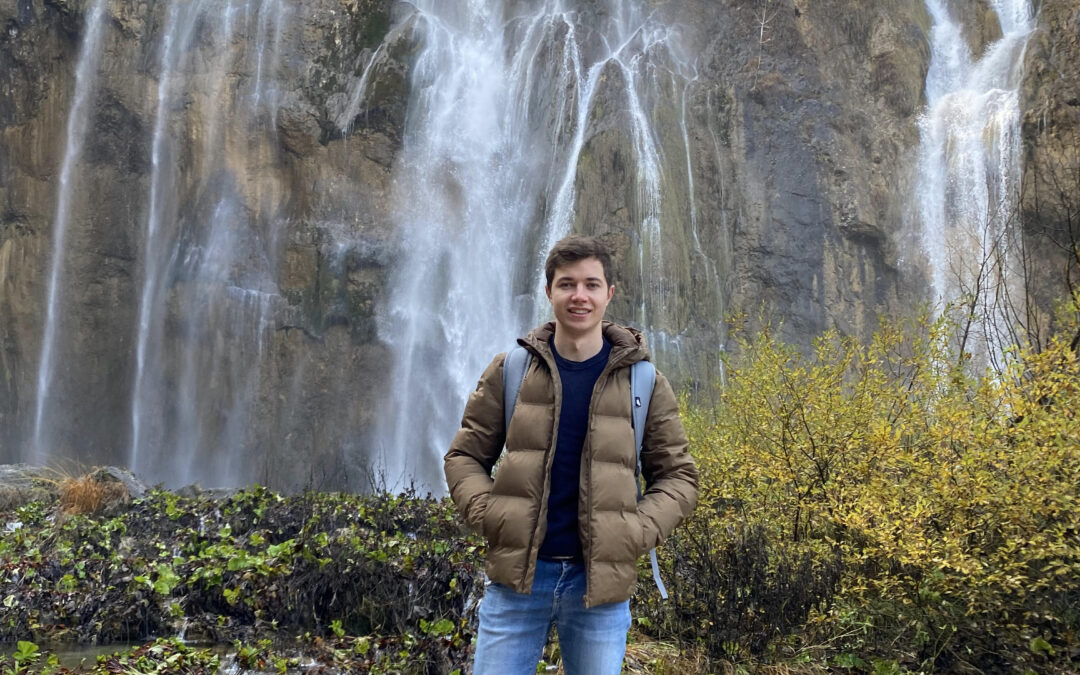
Danik from Moldova
Today our guest is Danik from Moldova who went on Erasmus to Croatia!Let's read about his experience! Hey! Please introduce yourself and tell us about your hobbies! 🙂 My name is Danik, I am 20 years old and I am from Moldova. I'm currently finishing my...
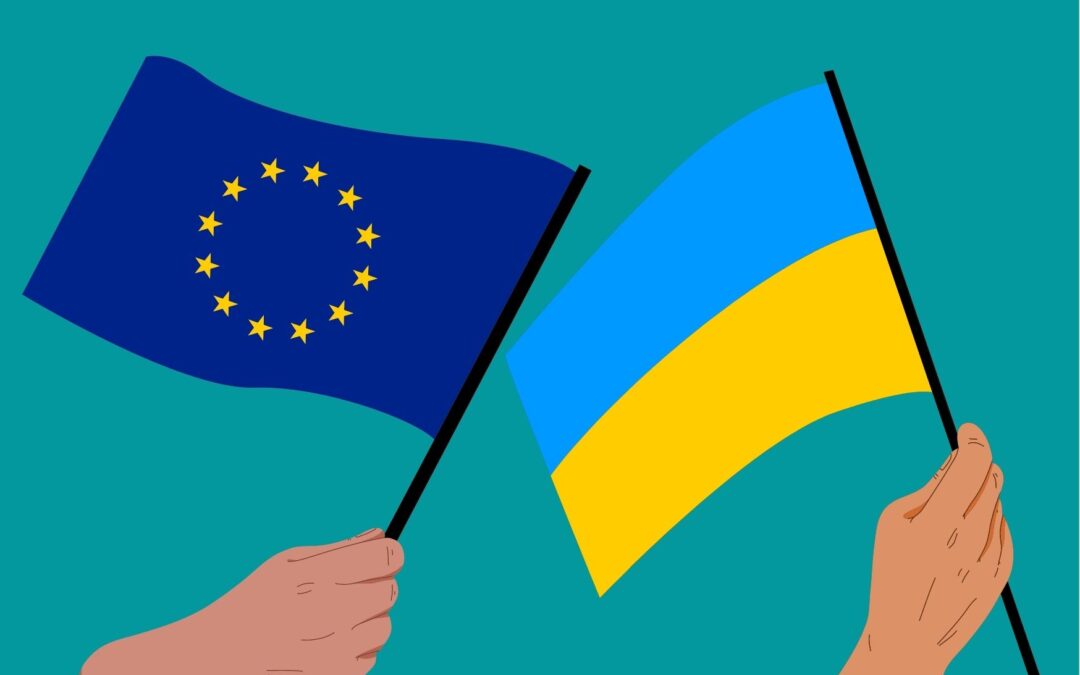
FORTHEM SUPPORTS UKRAINE
Alliances of European Universities show their solidarity to the Ukrainian people.41 Alliances of European Universities presented their Joint statement in support to Ukraine. FORTHEM partner universities wish to express their solidarity to the people of Ukraine.We are...
